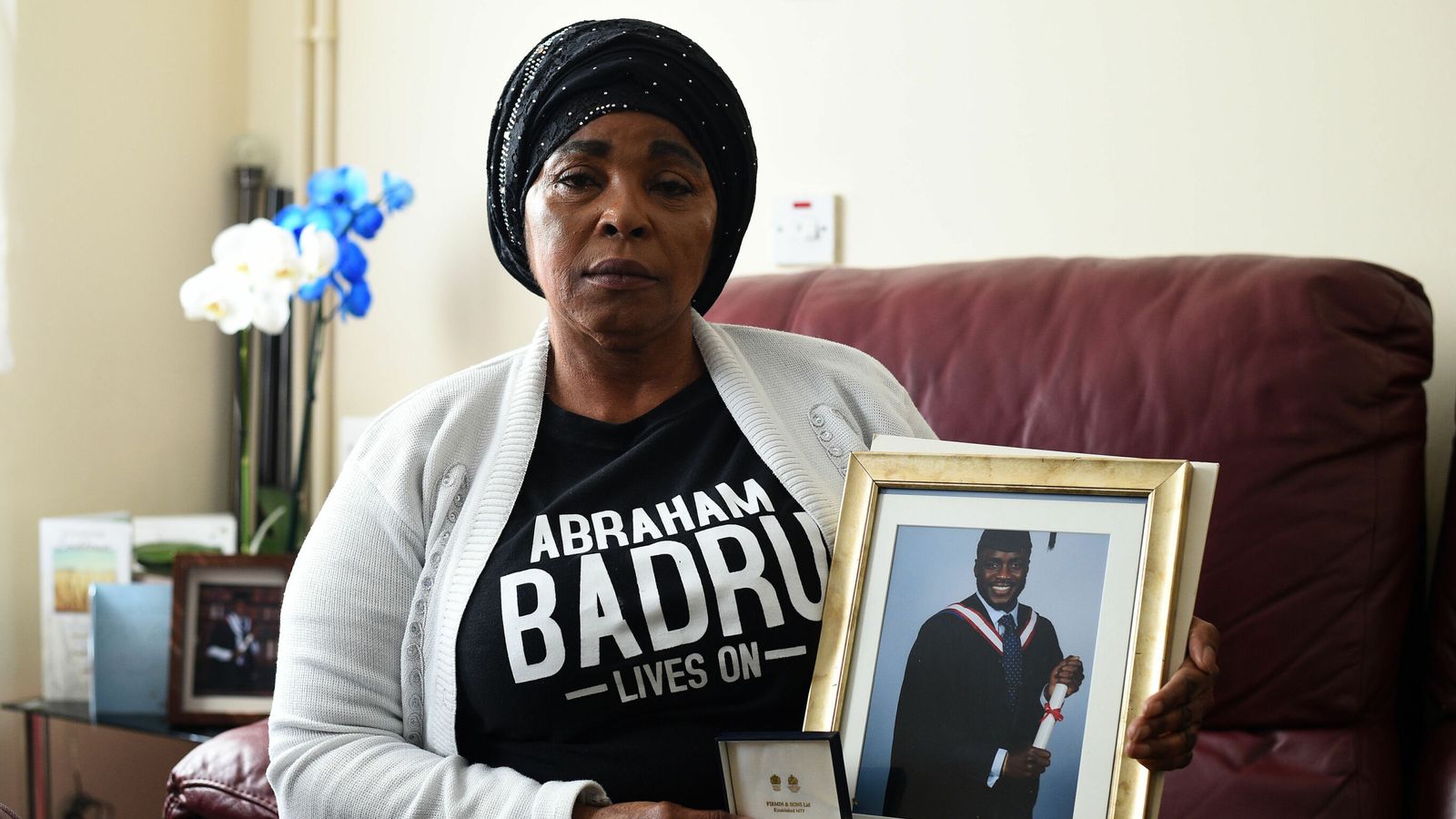One of the government’s “hostile environment” policies has been ruled unlawful for the fifth time, Sky News can reveal.
The policy, known as No Recourse to Public Funds (NRPF), is attached to the visas of about 1.5 million people in the UK, preventing them from accessing state support, such as universal credit.
However, the High Court has declared that the policy is unlawful, particularly in the way that it treats people with disabilities.
The case was brought by Romoke Kehinde Ali, a Nigerian woman whose son Abraham Badru was shot dead in London in 2018 following years of death threats.
As a teenager he had helped convict a gang of rapists, and even received a police bravery award for his actions. His murder, in Hackney, remains unsolved.
Last year, Ms Ali suffered a major stroke, which she attributes to the stress over her son’s death.
But her visa does not entitle her to access public funds, and she is unable to work and support herself.
Under the NRPF policy, people who fall on hard times can apply for help, but the Home Office denied her application.
“I couldn’t manage on my own,” she said. “I couldn’t get benefits, no care. My food and heating was paid by members of my church. I had no money. I couldn’t work. It was like living the last days of my life. It was like, ‘Why am I even living? Why am I suffering like this?'”
Ms Ali took the Home Office to court, and won. Her victory has significant implications not just for her, but for others in a similar position.
The High Court ruled that the policy failed to consider that disability could be grounds for requiring access to public funds.
As such, potentially hundreds of other people with No Recourse could apply for help.
It is hard to be precise on actual numbers because the Home Office does not collect data on those with disabilities who apply for help.
But The Unity Project, a small charity that helps people with NRPF, says that of the 900 cases they have examined since 2017, roughly half have involved some kind of disability.
The change could be a lifeline for people like Abi Aborisade.
She lives in Erith, south London, with her partner and three daughters, the eldest of whom is severely autistic, and a British citizen.
That daughter needs round-the-clock care, but Ms Aborisade has no access to benefits and struggles to juggle working as a carer with looking after her young family.
“Sometimes I’ll be at work and the school might call me that something is wrong with my daughter, who has severe behavioural issues, and I just need to leave work. And once I’ve left work, I don’t get paid for the rest of the day. I have to manage her, and the younger ones as well. It’s really difficult.”
The change to the law should in theory allow Ms Aborisade, and many others, to apply for the help they need.
This is not the first time the NRPF policy has been successfully challenged in the courts.
Adam Hundt, of solicitors Deighton Pierce Glynn, who brought the case, said: “The NRPF policy has now been found unlawful five times in as many years, in lots of different respects. And that’s because of a fundamental problem which is that it strips people of the basic right to ensure that their basic subsistence needs are met, that they and their children can live in adequate accommodation.”
The Home Office told Sky News in a statement: “The provision of No Recourse to Public Funds has been upheld by successive governments and maintains that those coming to the UK should do so on a basis that prevents burdens on the taxpayer.
“Strong and important safeguards have been put in place to ensure the vulnerable can receive support, including migrants who are destitute and have community care needs, or where there is a risk to the wellbeing of a child.”
It is worth noting, however, that many of those safeguards only exist as a result of court challenges to the policy.












